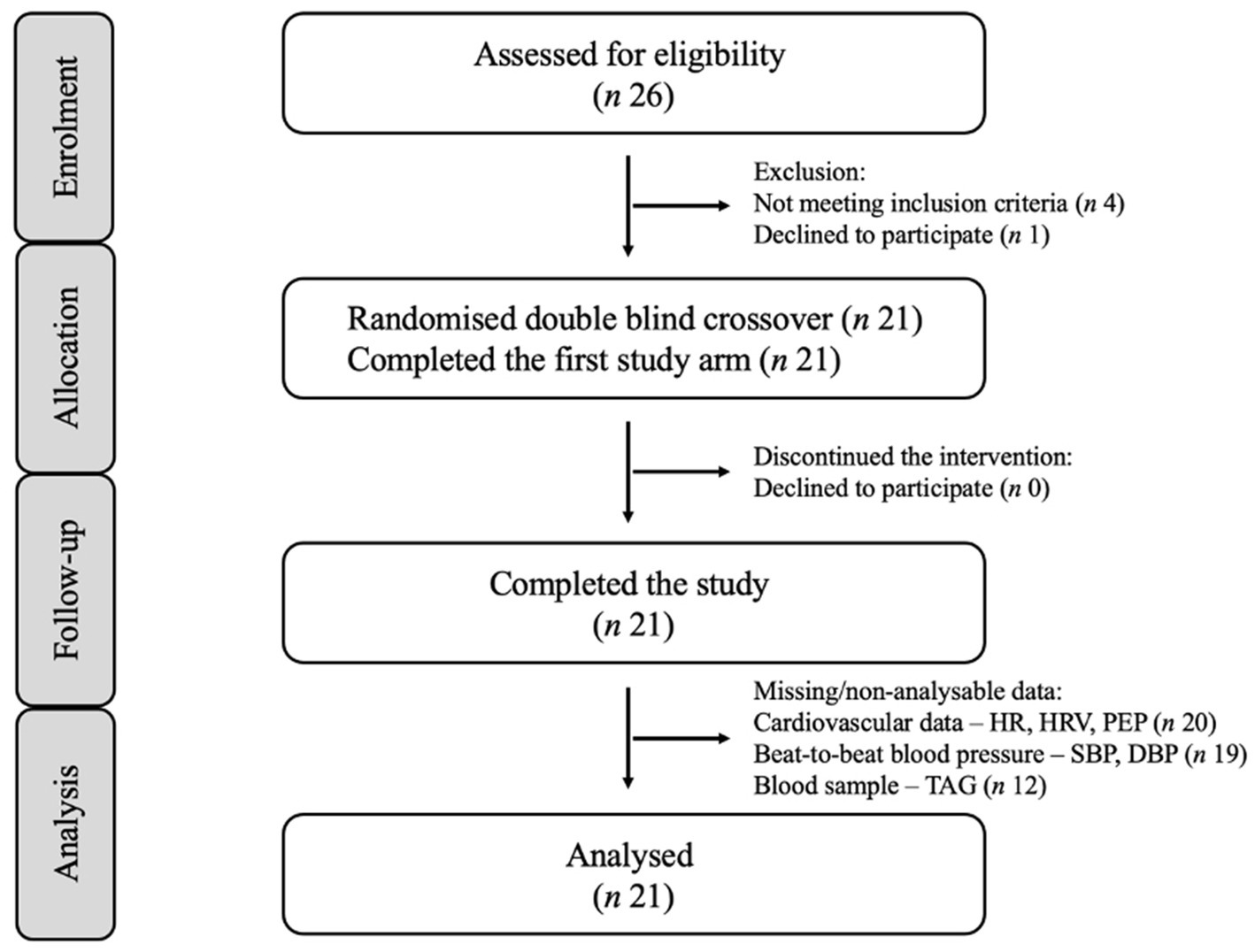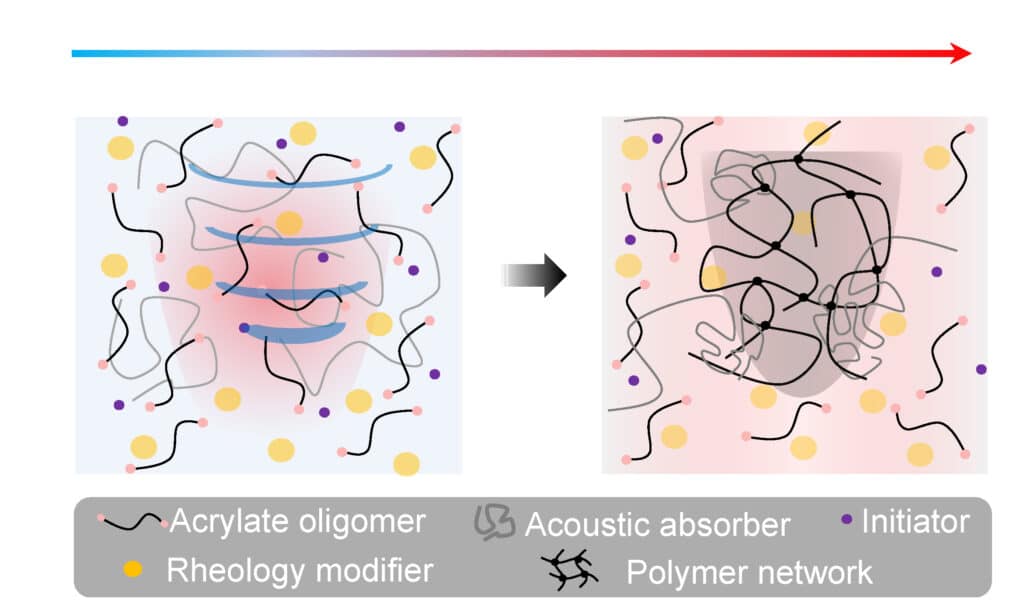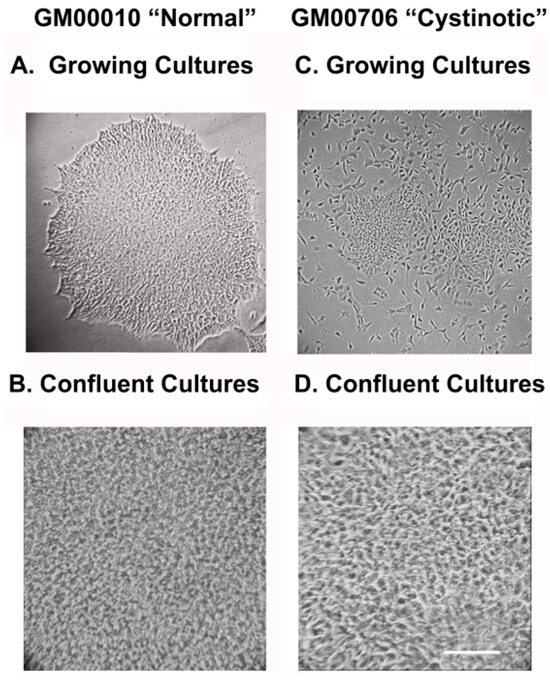2023-12-05 バーミンガム大学
◆研究では、高脂肪の朝食を摂取した被験者の血管機能が1.74%低下し、ストレス後90分間も影響が続いたことが明らかになりました。一方で、低脂肪の食事では、ストレスの影響が1.18%低下し、90分後には通常に戻りました。
◆研究者は高脂肪食品が脳の酸素供給にも悪影響を及ぼし、ストレス時およびその後の気分にも負の影響があると指摘し、ポリフェノールを含む「健康的な」食品の摂取が血管機能の悪化を完全に防ぐ可能性も示しました。
<関連情報>
- https://www.birmingham.ac.uk/news/2023/fatty-foods-can-impair-the-bodys-response-to-everyday-stress-study
- https://www.mdpi.com/2072-6643/15/18/3969
- https://www.frontiersin.org/articles/10.3389/fnut.2023.1275708/full
脂肪摂取は若年健康成人における精神的ストレス時の皮質酸素化を抑制する Fat Consumption Attenuates Cortical Oxygenation during Mental Stress in Young Healthy Adults
Rosalind Baynham,Samuel J. E. Lucas,Samuel R. C. Weaver,Jet J. C. S. Veldhuijzen van Zanten and Catarina Rendeiro
Nutrients Published: 14 September 2023
DOI:https://doi.org/10.3390/nu15183969

Abstract
Mental stress has been associated with cardiovascular events and stroke, and has also been linked with poorer brain function, likely due to its impact on cerebral vasculature. During periods of stress, individuals often increase their consumption of unhealthy foods, especially high-fat foods. Both high-fat intake and mental stress are known to impair endothelial function, yet few studies have investigated the effects of fat consumption on cerebrovascular outcomes during periods of mental stress. Therefore, this study examined whether a high-fat breakfast prior to a mental stress task would alter cortical oxygenation and carotid blood flow in young healthy adults. In a randomised, counterbalanced, cross-over, postprandial intervention study, 21 healthy males and females ingested a high-fat (56.5 g fat) or a low-fat (11.4 g fat) breakfast 1.5 h before an 8-min mental stress task. Common carotid artery (CCA) diameter and blood flow were assessed at pre-meal baseline, 1 h 15 min post-meal at rest, and 10, 30, and 90 min following stress. Pre-frontal cortex (PFC) tissue oxygenation (near-infrared spectroscopy, NIRS) and cardiovascular activity were assessed post-meal at rest and during stress. Mental stress increased heart rate, systolic and diastolic blood pressure, and PFC tissue oxygenation. Importantly, the high-fat breakfast reduced the stress-induced increase in PFC tissue oxygenation, despite no differences in cardiovascular responses between high- and low-fat meals. Fat and stress had no effect on resting CCA blood flow, whilst CCA diameter increased following consumption of both meals. This is the first study to show that fat consumption may impair PFC perfusion during episodes of stress in young healthy adults. Given the prevalence of consuming high-fat foods during stressful periods, these findings have important implications for future research to explore the relationship between food choices and cerebral haemodynamics during mental stress.
健康な若年成人において、脂肪摂取は精神的ストレス後の内皮機能の回復を損なう Fat intake impairs the recovery of endothelial function following mental stress in young healthy adults
Rosalind Baynham,Samuel R. C. Weaver,Catarina Rendeiro,Jet J. C. S. Veldhuijzen van Zanten
Frontiers in Nutrition Published:09 November 2023
DOI:https://doi.org/10.3389/fnut.2023.1275708

Introduction: Mental stress has been identified as a trigger of cardiovascular events. A single episode of stress can induce acute impairments in endothelial function in healthy adults. Importantly, during stressful periods, individuals often resort to unhealthy behaviors, such as increased consumption of high-fat foods, which is also known to negatively impact endothelial function. Therefore, this study examined whether consumption of a high-fat meal would further exacerbate the negative effect of mental stress on vascular function.
Methods: In a randomized, counterbalanced, cross- over, postprandial intervention study, 21 healthy males and females ingested a high-fat (56.5 g fat) or a low-fat (11.4 g fat) meal 1.5 h before an 8-min mental stress task (Paced-Auditory-Serial-Addition-Task, PASAT). Plasma triglyceride (TAG) concentration was assessed pre-and post-meal. Forearm blood flow (FBF), blood pressure (BP), and cardiovascular activity were assessed pre-meal at rest and post-meal at rest and during stress. Endothelial function, measured by brachial flow-mediated dilatation (FMD) was assessed pre-meal and 30 and 90 min following mental stress.
Results: Plasma TAG concentration was significantly increased following the high-fat meal compared to the low-fat condition. Mental stress induced similar increases in peripheral vasodilation, BP, and cardiovascular activity, and impaired FMD 30 min post-stress, in both conditions. FMD remained significantly impaired 90 min following stress in the high-fat condition only, suggesting that consumption of fat attenuates the recovery of endothelial function following mental stress.
Discussion: Given the prevalence of fat consumption during stressful periods among young adults, these findings have important implications for dietary choices to protect the vasculature during periods of stress.


